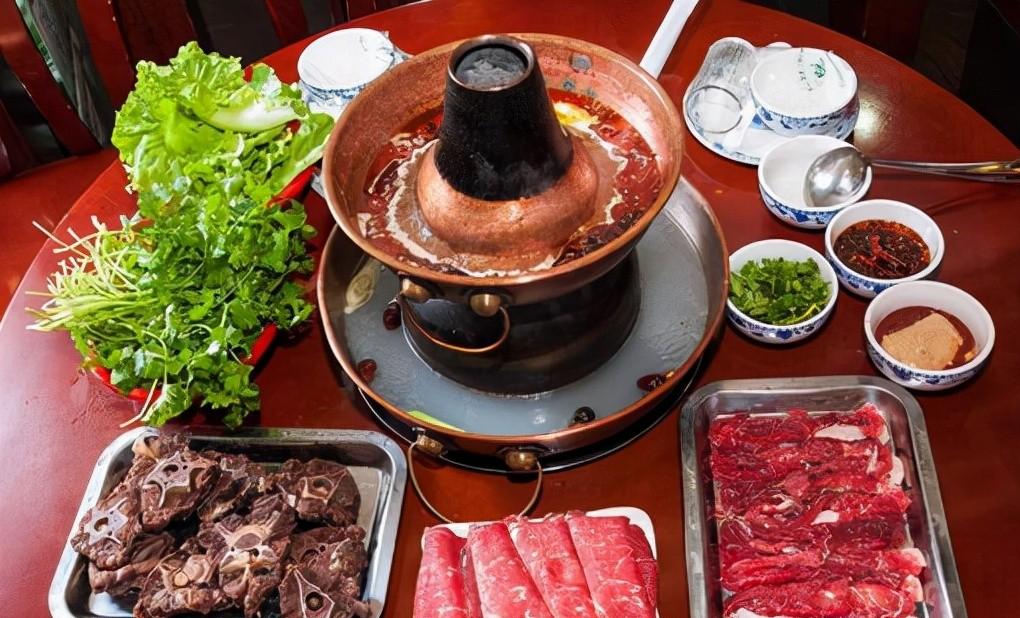In Chinese history, there is a traditional cuisine called "hot pot". Because Sichuan is located in the Sichuan Basin region, the humidity is very large, in order to effectively remove moisture from the body, hot pot is particularly popular in the local area and has become a unique local delicacy. Hot pot is known for its spicy taste, and people who eat hot pot sweat profusely. After eating, warm stomach dehumidification is beneficial to people's health to a certain extent. Legend has it that this delicacy was originally invented by Genghis Khan, a generation of geniuses. So is this true?

Chongqing hot pot, also known as Mao belly hot pot or spicy hot pot, is a traditional Chinese way of eating, originating from the late Ming and early Qing dynasties of Chongqing Jialing River, Chaotianmen and other dock boatman porters extensive catering methods, raw materials are mainly beef tripe, pig yellow throat, duck intestines, beef blood Wang and so on.
Although the container, preparation method and seasoning of hot pot have undergone thousands of years of evolution, one common point remains unchanged, that is, to use a fire pot, conduct heat with water (soup), and cook (shabu) food. This cooking method has appeared as early as the Shang and Zhou Dynasties, and it can be said that it is the prototype of hot pot. In the "Han Poetry Biography", it is recorded that in ancient sacrifices or celebrations, it is necessary to "strike the bell and eat the ding", that is, everyone gathers around the perimeter of the ding, and puts the beef and mutton and other foods into the ding to cook and divide the food, which is the bud of the hot pot.
After the evolution of the Qin, Han and Tang dynasties, it was not until the Song Dynasty that there was really a record of hot pot. The Song Dynasty Lin Hong mentioned the matter of eating hot pot in his "Mountain Family Offering", which is called "Dialing Xia Offering", and talked about his tour of Wuyi Mountain, visiting the teacher, getting a rabbit in the snow, and cooking without a chef. "Shi Yun, only thin batches are used in the mountains, and wine, sauce, and pepper are fertile." Set the table with a wind stove, use half a cup of water (half hanging), wait for the soup to ring a cup (wait for the soup to open), divide each one with a spoon, so that the self-clamped soup swing (shabu) is cooked, and the soup (eating) is eaten at will with juice (each person). From the perspective of eating method, it is similar to the current "shabu rabbit meat hot pot". It wasn't until the Ming and Qing dynasties that hot pot really flourished. On the tenth day of the first month of the 48th year of the Qianlong Dynasty, the Qianlong Emperor ran 530 tables of court hot pot, which was the most pompous in China at that time. When the Qing Jiaqing Emperor ascended the throne, he once placed a "Feast of a Thousand Sorrows", and the number of hot pots used reached 1550, and its scale was amazing.
But there is a legend that the origin of hot pot is not in Sichuan, it was invented by Genghis Khan. He commanded troops in all directions for many years, and it was time-consuming to see soldiers eating traditional barbecue lamb, so that the troops did not delay the fighters, he cut the lamb into small pieces and threw it into a boiling pot, and since then there has been a hot pot in this world. In a way, it was the hot pot that made the Mongol cavalry, after filling their stomachs, attack the Central Plains with great energy and fight west to Central Asia.
There is another legend that says that more than a thousand years ago, in the Three Gorges of the Yangtze River, a group of porters, taking heavy steps and dragging their tired bodies, built soil on the riverside as a stove. They took out the peppers, peppercorns, and spices they carried with them, took the water of the Yangtze River, boiled them into a soup, accompanied by spirits, and blanched fresh fish and shrimp and various vegetables. A moment of heroism, a passion, a tiredness of the whole body, the porters roared again with excited trumpets, carrying the rope on their backs. Behind him were an earthen stove and wisps of green smoke.